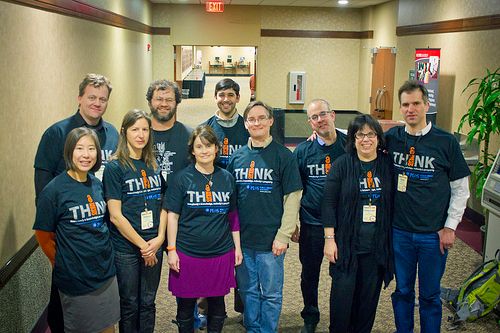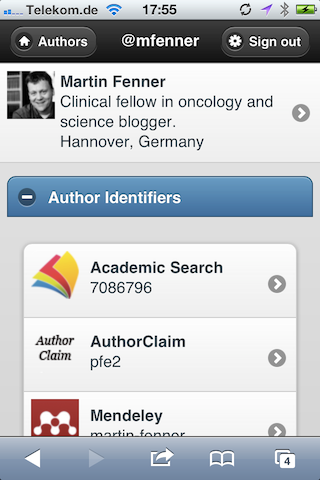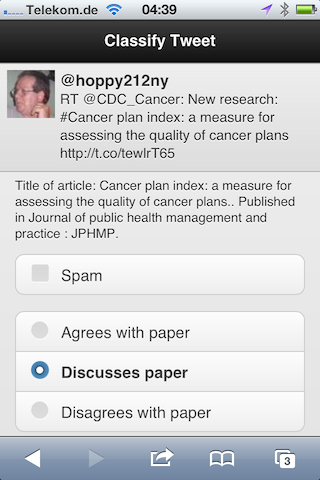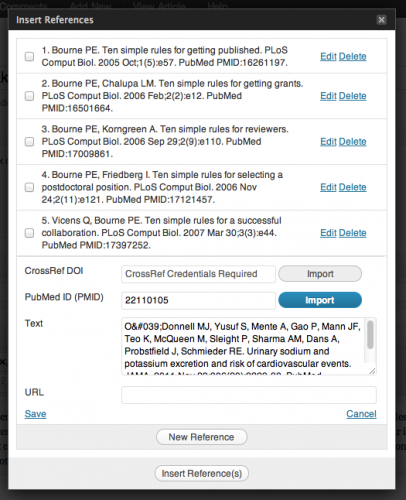Earlier this week I wrote a guest post for the Impact of Social Sciences blog.
Front Matter

Zotero 3.0 was officially released today. The big change in version 3.0 of the reference manager is a standalone version that runs outside the Firefox browser. The first beta was released in August 2011.
Faculty 1000 today announced F1000 Research , a new fully Open Access publishing program across biology and medicine, that will start publishing later this year . The default open access license is CC-BY, and CC0 for data.

The ScienceOnline2012 conference last week again was a wonderful experience. This was my third time in North Carolina, and I had many great conversations in the sessions, hallways – and bars. One of many highlights was a lunch meeting with fellow PLoS bloggers and staffers. Together with Euan Adie I moderated a session on Friday: Using altmetrics tools to track the scholarly impact of your research.

The Sloan Foundation has awarded a $125,000 grant to Columbia University and Mendeley to fund the development of a Citation-Style Language (CSL) editor. CSL is a XML-based language to format citations and bibliographies, and is used by the reference managers Zotero, Mendeley and Papers, and in many other places.

ScienceCard is a web service that collects all scientific articles published by an author and displays their aggregate article-level metrics. Yesterday I added a mobile version to ScienceCard, simply browse to ScienceCard with your mobile phone or go to http://mobile.sciencecard.org.

Two weeks ago Euan Adie from altmetric.com and myself launched the website CrowdoMeter, a crowdsourcing project that tries to classify tweets about scholarly articles using the Citation Typing Ontology (CiTO). Despite the holidays we have gotten off to a good start with currently 597 classifications by 56 different users, already covering 93% of the tweets we wanted to classify.

Version 1.0 of Annotum, the free WordPress theme for writing scholarly articles, was announced in late November. Back in June I wrote about the first public version of Annotum, but until now using Annotum was experimental. Annotum is available in the WordPress Themes Directory at WordPress.org (and has been downloaded more than 9,000 times in the past three weeks), and is also available for users of WordPress.com.

I’m very proud to report that ScienceCard last week has been named finalist in the Mendeley/PLoS API Binary Battle. Not bad for a project that started only two months ago in a hackathon following the Science Online London conference and is done in my spare time. The winners of the contest will be named on November 30, but I’m more than happy that the project has even gotten this far.
BibTeX is one of the most popular file formats for bibliographies, and is therefore commonly used to transfer bibliographies from one reference manager to another, or to other applications that handle bibliographic references. RIS and Endnote XML are probably the other two bibliographic file formats most commonly used. Most reference managers support all three formats, making it easy to move references around.

Last week I attended the Transforming Scholarly Communication workshop in Cambridge, Massachusetts.